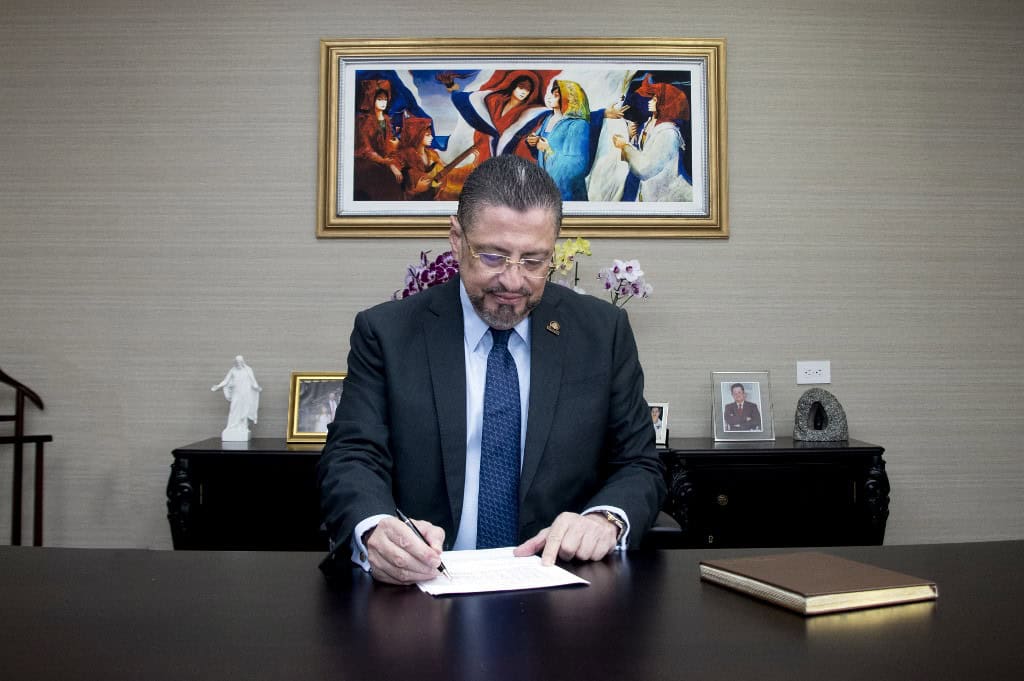As previously announced, President Rodrigo Chaves confirmed he will seek to call a referendum on several bills being promoted by his administration. During his speech before the legislative plenary, the President proposed submitting several bills for citizen consultation. These include measures such as implementing 4/3 working days, harmonizing the electricity market, eliminating maximum deconcentrating of the MOPT’s five councils and several organs of the MINAE and the MAG, and constructing the Government City.
Additionally, the proposed bills encompass the JAPDEVA Law for a public-private alliance for constructing and operating a marina and cruise terminal, eliminating minimum rates for professional fees, and facilitating the sale of Banco de Costa Rica and Banco Internacional de Costa Rica S.A. (BICSA).
The head of state mentioned that there are two options to call for a referendum. The first one is that the Executive submits to the Legislative Assembly a referendum proposal to be approved by at least 29 deputies, and the second option is that a request for a referendum by citizen initiative is submitted to the Supreme Electoral Tribunal (TSE).
“The decision to promote the referendum has been made, and it could be reversed only if the deputies are willing to commit themselves to a national and non-partisan legislative agenda,” Chaves noted.
He also said the Executive Branch will promote a referendum “for the citizens to decide whether they agree or not to approve bills that are indispensable for the future of the country.”
The only time Costa Ricans have voted in a referendum was back in 2007 when citizens had to decide whether or not the country was going to sign the Central American Free Trade Agreement (CAFTA).
Chaves reiterated on several occasions that neither he nor the people need the members of Congress. His relationship with the Legislative Assembly has been rocky and complex over the course of his mandate.
“The country does not need them, the country would benefit from them acting, the country, the people have mechanisms with which they can be removed and I am not threatening them, if they continue like this I am going to call for a referendum with 12 or 15 laws, let the people know,” said Chaves during an interview last week.
He mentioned this mechanism has been used by countries such as Switzerland and Uruguay, both solid democracies. “The Government considers that there is nothing more democratic and sublime than the direct decision of the people,” the President concluded.






